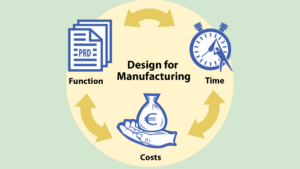Project Management is the art of guiding a project from conception to completion with precision and finesse. It’s a discipline that ensures resources are utilized efficiently, timelines are met, and goals are achieved. In this blog, we’ll explore the significance of project management and how it plays a pivotal role in the successful execution of complex endeavors.
The Pillars of Project Management:
Project Management involves a systematic approach to planning, executing, monitoring, and closing a project. It relies on proven methodologies and strategies to deliver results. Here’s why project management is crucial:
- Efficient Resource Allocation: Project managers are skilled in optimizing resource allocation. They ensure that materials, manpower, and budget are utilized effectively to maximize productivity.
- Timely Execution: Meeting deadlines is often the cornerstone of success. Project managers meticulously plan and track progress to ensure that milestones are achieved on schedule.
- Risk Mitigation: Projects come with inherent risks. Project managers are adept at identifying potential challenges and developing strategies to mitigate them, reducing the impact of unforeseen obstacles.
- Quality Assurance: Maintaining quality standards is non-negotiable. Project managers implement quality control measures to ensure that the final deliverables meet or exceed expectations.
- Stakeholder Communication: Effective communication is vital. Project managers act as liaisons between stakeholders, ensuring that everyone is informed and aligned with project objectives.
The Project Management Lifecycle:
Project Management involves distinct phases, each contributing to the overall success of the project:
- Initiation: This phase involves defining the project, its scope, objectives, and stakeholders. Project managers establish the project’s feasibility and align it with organizational goals.
- Planning: Project managers create a detailed project plan, outlining tasks, timelines, and resource requirements. They identify potential risks and develop strategies to address them.
- Execution: This is where the project comes to life. Project managers oversee the implementation of the plan, coordinating activities, and ensuring that everything runs smoothly.
- Monitoring and Controlling: Project progress is continuously monitored against the plan. Project managers make adjustments as necessary to keep the project on track and within scope.
- Closure: Once the project is completed, project managers ensure that all deliverables meet quality standards. They obtain formal acceptance from stakeholders and close out the project.
Success Through Project Management:
Project management isn’t just about getting the job done; it’s about getting it done right. It’s the key to delivering successful projects on time and within budget. With a skilled project manager at the helm, organizations can confidently embark on even the most complex endeavors, knowing that they have the expertise to navigate challenges and achieve their goals.
In conclusion, project management is the linchpin of successful project execution. It ensures efficient resource allocation, timely completion, risk mitigation, and quality assurance. With a well-structured approach to project management, organizations can turn their ambitious visions into tangible achievements, achieving success one project at a time.






